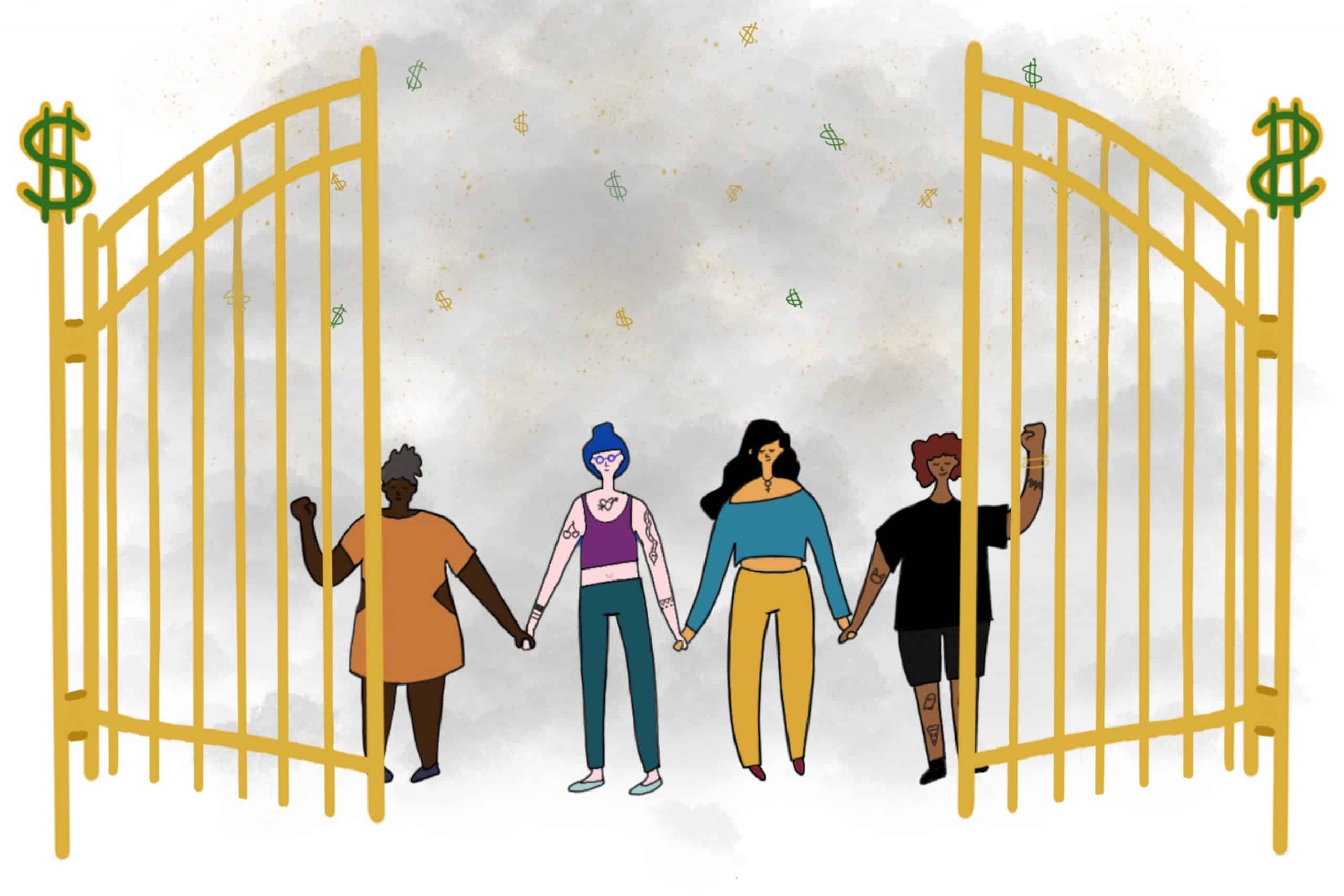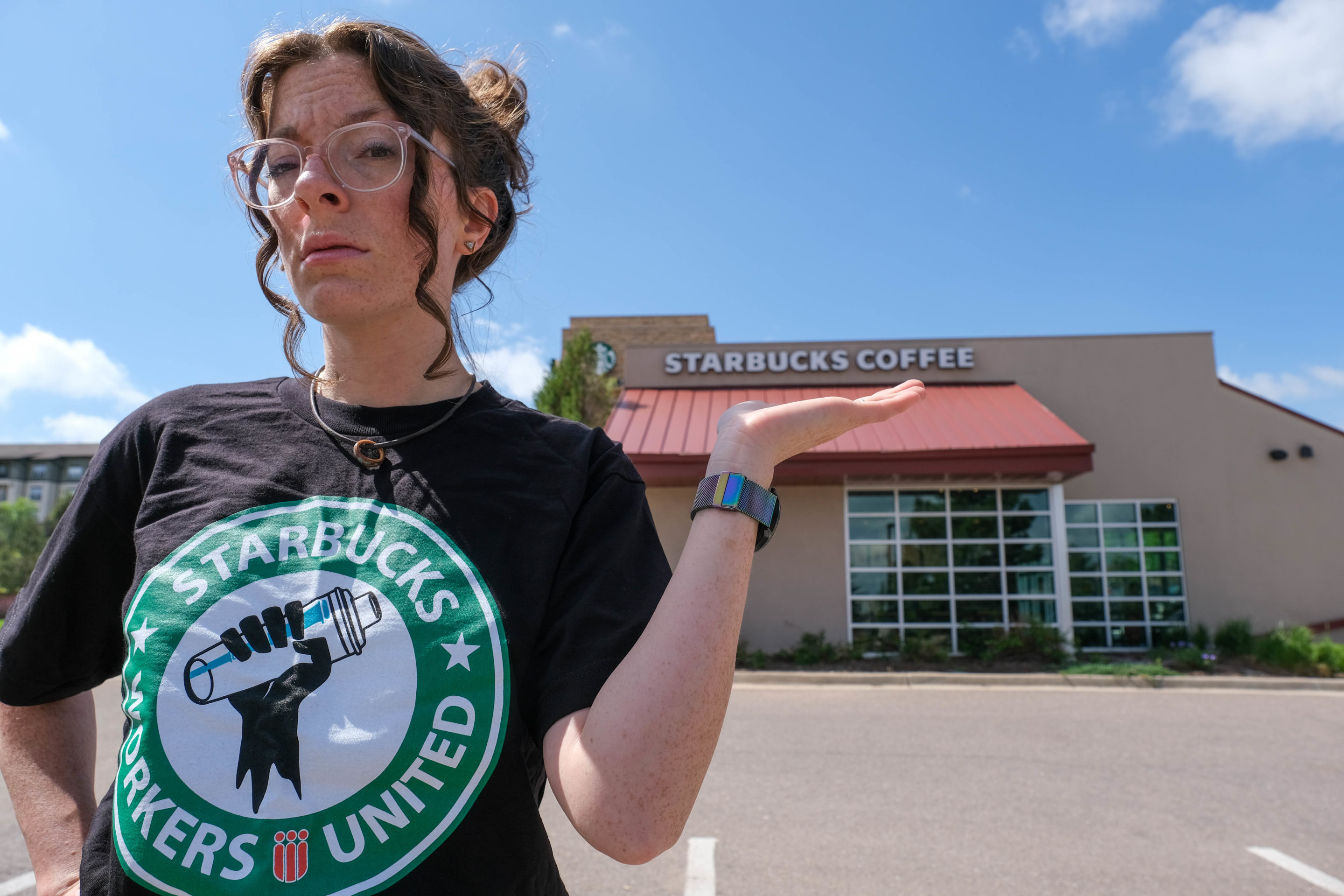//Illustration by Madison Lauterbach | [email protected]
In June of this year, Alexander E. Kearns was an average 20-year-old student at the University of Nebraska. In his free time, Kearns began exploring the popular financial trading app named Robinhood. With negligible background knowledge, the app offered Kearns leverage in the neighborhood of one million dollars to begin trading. Upon finding a negative cash balance of $730,000 on his account, Kearns committed suicide.
“How was a 20-year-old with no income able to get assigned almost a million dollars’ worth of leverage?” Kearns wrote in a letter shared by a family member. “The puts I bought/sold should have canceled out, too, but I also have no clue what I was doing now in hindsight.”
While it isn’t clear what exactly led to Kearns’ suicide, experts and the public have called for Robinhood to reassess their practices, something the app promised to do soon after the tragedy.
If you are now in a cold sweat checking your apps: take a deep breath. Robinhood stated after Kearns’ death that while he did have a negative balance, the extreme amount shown was partially a mistake made by the app, one that was quickly corrected. He didn’t actually owe the $730,000 balance that showed on his screen, despite being led to believe he did.
While trading apps have soared in popularity, especially among younger generations, there are many adept in the world of finance that argue for a well-rounded approach to developing one’s portfolio.
Financial advisors, registered representatives, brokers— are all titles that may blur together for those who believe the gates of professional money management are closed to them. Recent history will recall women needing their husband’s signature to apply for credit cards. Redlining continues turning potential homes into sites of nouveau-segregation. Therefore, it is no surprise that younger generations are weary of the mainstream financial sector.
This hesitation—coupled with an economy resembling a monumental question mark—leaves women, BIPOC and those with flimsy safety nets hoping to find trap doors into the land of financial freedom. The surge in popularity of trading apps like Robinhood was all but imminent. However, they do not offer the security that many seek.
“I don’t think the app is all bad by any means,” said financial advisor Emily Simones. “You just have to plan for it and you have to understand it, and you have to understand diversification before you start exploring.”
With her advisor’s license, Simones has her Series 6 and Series 63 certifications. These additional licenses are overseen by the regulating agencies of the Financial Industry Regulatory Authority, or FINRA, and the North American Securities Administrators Association, or NASAA, respectively.
Financial advisors do not require specific licensing, a practice that came under scrutiny in 2019. However, advisors like Simones, who have additional certifications, are held to higher standards by agencies like FINRA and NASAA. The Series certifications allow for the selling of financial products, and advisors are regulated by the issuing agency. A higher level of certification is that of fiduciaries, who are required to put their client’s best interests ahead of their own.
Financial planners of all types receive payment in various forms. Some charge a fee for planning, some only charge when the client makes money off of trades that their planner brokers, others are paid by corporations that offer products like life insurance.
Simones proudly does not charge a fee for a consultation. She runs a financial planning practice that provides her clients with a blueprint for achieving their goals. Her work often revolves around educating the people she serves on the basics of finance that they may not have learned in childhood. She states that most of her clients have blindspots simply due to differences in the economy between generations.
After working with millennials, she realized that baby boomers are often unable to provide sound advice due to changes in the job market, social security and housing. Simones also understands the fear that millennials carry, the same fear that is driving them to trading apps in the hopes of a quick fix for an uncertain future.
“Parents are never trying to lead their kids astray, but, personally, my dad is big on the 15-year mortgage. But in Denver, I can’t afford a 15-year mortgage. And you know, when my dad gives me that advice, he’s not trying to lead me astray, it’s just, that was relevant when he was my age, so that’s the advice he’s going to leave me,” Simones said.
Financial advisors like Simones offer clients long-term personalized plans that no app can compete with. She believes people of all generations have a misconception that financial planning is only for the wealthy or only for men. Simones has not only found that most of her female clients require greater assurance of their financial moves, a reality proven by the aptly named “Boys Will Be Boys” study, but also that women feel more comfortable speaking with her than with her male counterparts.
Women looking for a female financial guru may find themselves at a loss. Women fill less than 20% of positions within the industry. However, in Denver, the tides may be changing. A 2016 Denver Business Journal article quoted Lori Green, the Denver office managing partner of Grant Thorton, saying that 50% of the firm’s 2016 new hires were women.
Denaye Austad is one of the young women in Denver’s financial sector. Like Simones, she works with many female clients she believes have been left behind by financial institutions.
Austad is a registered representative, similar to a registered investment advisor. She suggests that those willing to grow their finances work with a trained professional to create a diversified plan. She also makes sure to be upfront about payment practices and hopes all clients hold their advisors to the same standard.
“If you’re going to work with an advisor, make sure you’re aware of how it is they’re getting paid,” Austad said. “Not that there’s anything inherently wrong with any pay structure, just make sure that you understand it. For me, it doesn’t cost anything to sit down with me as a client. The planning part of what I do is completely complimentary. If somebody just needs education, that doesn’t cost them a dime.”
Austad understands that some people are not prepared to speak openly about their finances, especially with strangers. This is why she started the Leveled Up Podcast with Business Coach Megan Austin and Mortgage Loan Officer Sarah Flannery.
The podcast answers questions about topics you might ask your life coach if you could afford one: terrible bosses, turning passions into careers and not going broke during COVID.
In a recent episode titled “Money Confidence,” the trio interviewed Jenn Uhen. She is the founder of the female financial group The Pledgettes.
In the episode, Uhen referenced Ellevest founder Sally Krawcheck by saying that parents talk to their daughters about money like it’s a pond, a scarce resource. In contrast, they talk to their sons about money like it’s a river, something that has energy. Uhen references this dichotomy often in Pledgettes meetings.
During a recent celebration of Women’s Equality Day, Uhen connected existing members with potential Pledgettes in a night of financial discussion. The group answered questions such as “What is your first memory about money?” and “Who is on your financial aid team?”
Uhen often reminds the groups that one of the most efficient ways to decrease pay gaps is to speak openly about money.
Of course, there is not just the gender pay gap but also the racial pay gap. According to the 2018 Census Bureau data, on average, for every dollar a white man makes, white women are paid $.79. Black women are paid $.62 and Latinas $.54 on that same dollar. This pay gap is just one component of the stratification of wealth between races.
While many might feel they are not in a position to invest, it is largely seen as an important step to financial freedom. Financial programs can help design long term financial strategies, including retirement, that set families up for a more prosperous future. Healthy retirement plans, therefore, are seen as an important step in narrowing the racial wealth gap.
But as with all other investments, assets matter. According to the Urban Institute, the average wealth of white families was seven times greater than Black families and five times greater than that of Hispanic families in 2016.
This significant racial wealth gap can be attributed to several factors. Black and Hispanic families fall far behind on wealth-building measures like homeownership and are far more likely to carry higher student debt than their white peers. Black and brown individuals are also less likely to receive an inheritance to help them get started. Federal policies that aim to support asset development consistently fail lower-income families.
According to the Urban Institute, tax and retirement subsidies meant to help homeowners don’t get distributed fairly. Two-thirds of those subsidies go to the top 20% of taxpayers as measured by income. Meanwhile, the bottom 20% only get less than a single percent of those subsidies. A racial dimension also exists. Black and Hispanic families have lower average incomes compared to whites and receive much less in subsidies than whites do in total amount and as a share of their incomes.
All of these hurdles to wealth building can be attributed to discriminatory economic practices that have persisted for generations. And without wealth, there is no knowledge of wealth management or growth to pass down.
For this reason, Jeri Ellison-Beauford, a partner support manager with Charles Schwab, has held a personal passion for financial literacy in the Black community. Ellison-Beauford has found that most large scale financial advice is directed at certain subsections of society.
“First of all, not talking about finance is a middle-class thing. Rich people talk about finance all the time. Poor people don’t because they don’t have the resources,” Ellison-Beauford said. “When you talk about it, it’s so personal, and it does come down to who you are.”
Ellison-Beauford first started by implementing Charles Schwab’s Boys and Girls Club programs that teach financial literacy. She moved away from the pre-made models of talking to kids about money. One of the most notable changes she made was choosing not to include concepts like allowance, which lower-income children often do not receive.
Ellison-Beauford is currently developing a new program relevant to Denver’s diverse residents who have previously been misunderstood and misinformed by corporate America.
“If I were writing an article, I would tell people that [popular financial programs] are cookie-cutter models. They are speaking to the masses. But that’s the problem; you’re not the masses. You have to get down to what’s going on in your situation,” Ellison-Beauford said. “You’ve got to get down to being a female, being a majority, all of those things on top of everything else, makes it more difficult.”
Annie’s latest editorial about her post-election feelings can be read here.





Very significant subject and well presented article.
In addition:
“You (also)have to get down to”taking individual responsibility for understanding the different aspects that are included in being financially aware and ultimately financially secure.
Areas to consider include cash flow, housing, retirement, and priorities.